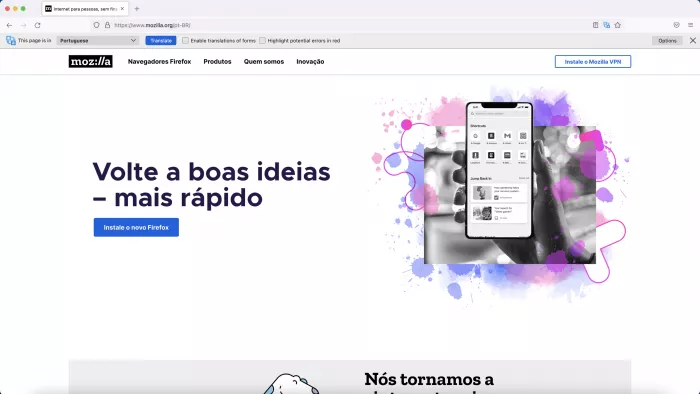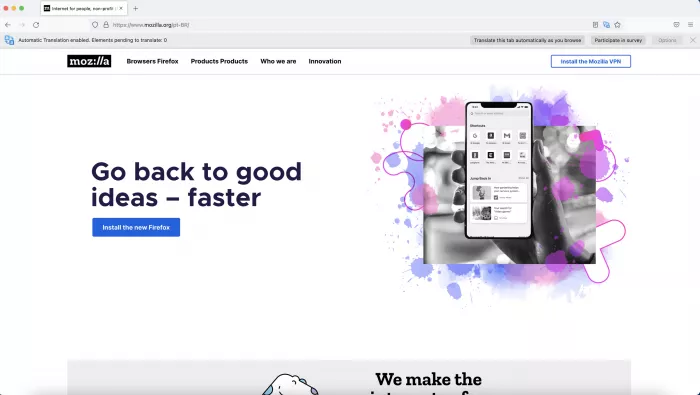Mozilla has added an official translation tool to the Firefox browser. It should be noted that it does not rely on cloud processing to complete its work, but implements a machine learning based process on the user's own computer Compared with a popular service closely linked with giants such as Google and Microsoft, this is a huge progress in terms of security and privacy protection.

This translation tool is called "Firefox translation" and can be added to the Firefox browser in an extended form here:
When translating a language for the first time, it needs to download some supporting resources. If necessary, it may download an improved language model, but the actual translation work is ultimately completed by the computer, not in the data center hundreds of miles away. On the one hand, it does not support many languages at present.
This is important not because many people need to translate in the browser when they are offline -- just like the screen door of a submarine, this is not a meaningful use case -- but because the goal is to reduce the ultimate dependence on cloud providers with ulterior motives to complete tasks that no longer need their resources.
This translation tool is actually the result of the EU funded Bergamot project. Mozilla has developed a set of machine learning tools in cooperation with several universities to make offline translation possible. Typically, this work is done by the GPU cluster in the data center, where a large language model (gigabytes in size and billions of parameters) will be deployed to translate user queries.

However, although the cloud based tools of Google and Microsoft (not to mention other new competitors) are becoming more and more accurate, and (due to their almost unlimited computing power) are very fast, there are basic privacy and security risks in sending the data to be translated to a third party for analysis and return. For some, this risk is acceptable, while others hope not to involve these internet giants without necessity. For example, if Google translated the menu of snack bar, would it start to become the target of sausage promotion? More importantly, if someone uses a known device ID and location to translate immigration or medical documents, will law enforcement knock? For anyone worried about the privacy of using cloud provider translation, it makes sense to do all offline work under any circumstances.